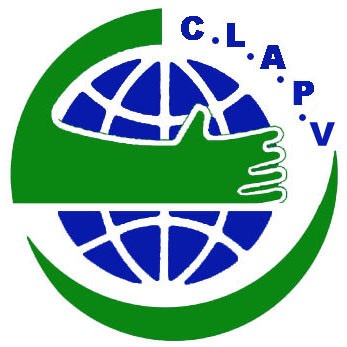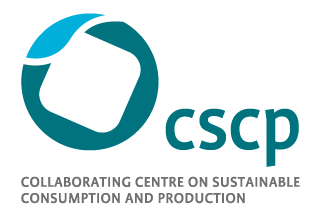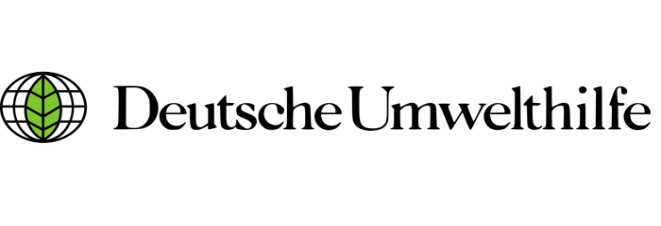2016 “Social and Environmental Justice” Twinner
Chinese NGO |
European NGO |
| Lingnan Partner Community Support Centre, Guangzhou | Balkan Kids Foundation, Bulgaria |
| Centre for Legal Assistance to Pollution Victims (CLAPV), Beijing | Instituto Internacional de Derecho y Medio Ambiente (IIDMA), Spain |
| P8, Changsha | Collaboration Centre on Sustainable Consumption and Production, Germany |
| BlueSky4Children, Shanghai | Wuppertal Institut für Klima, Umwelt und Energie, Germany |
| China Biodiversity Conservation and Green Development Foundation, Beijing | Deutsche Umwelthilfe e.V., Germany |
| Friends of Old Villages, Shenzhen | Bund Heimat und Umwelt (BHU), Germany |
| Institute for Sustainable Environment and Energy, Shanghai | Netwerk Bewust Verbruiken, Belgium |

Lingnan Partner Community Support Centre, Guangzhou
Lingnan Partner Community Support Centre with its five full-time, nine part-time employees and 37 volunteers is China’s biggest NGO working mainly on sexual health services and education in South China. The organisation was founded in 2007 and works closely together with Guangdong Provincial Department of Education, Guangdong Family Planning Association and other institutions which enables them to reach China’s youth with their educational programs. The Centre holds many seminars during which they teach young people about sexually transmitted diseases like HIV and health risk prevention.

Balkan Kids Foundation, Bulgaria
The BalkanKids Foundation from Varna, Bulgaria was founded in 2004. Their work is focused on young people from disadvantaged economic backgrounds, orphanages and those trying to overcome addictions. The foundation’s aim is the prevention of risky behaviour in youth by developing programs for inclusion and social leadership. They manage foster homes, day care centres and other social institutions. The organisation teaches through non-formal educational methods, for instance, by incorporating sports and music. BalkanKids also work on promoting of civic activity and intercultural tolerance through various campaigns, events and media.
Exchange Topic: Sexual education and technology addiction prevention for marginalized youth
The exchange between these organisations focuses on sexual education and technology addiction prevention as well as education on non-violent behaviour for marginalized youth. They aim at improving young adult’s holistic well-being.

Centre for Legal Assistance to Pollution Victims (CLAPV), Beijing
The Centre for Legal Assistance to Pollution Victims (CLAPV) was established in 1998 and its focus is to safeguard environmental rights. CLAPV is a research institution on environmental and natural resource law and mainly consists of 25 legal experts and attorneys who are willing to deal with cases involving public interest. They organize research on environmental legislation and its implementation, promote international academic exchanges and launch professional training programs. The organisation also tries to popularize knowledge on environmental and natural resource law and protect the environmental rights and interests of pollution victims by providing legal assistance.

Instituto Internacional de Derecho y Medio Ambiente (IIDMA), Spain
The Instituto Internacional de Derecho y Medio Ambiente (IIDMA) is a non-profit organization registered in Spain and established in December of 1996. It was accredited to the Governing Council of the United Nations Environmental Program (UNEP) in 1998 and, in 2001, was declared a public utility by the Spanish Ministry of Home Affairs. IIDMA’s mission consists of contributing to the protection of the environment and promoting sustainable development through the study, development and effective implementation of the law, emphasizing implementation, compliance and enforcement. In doing so, the main challenge lies in making international and national institutions, as well as citizens, aware of the importance of legal instruments in transforming environmental policies into actions.
Exchange Topic: Environmental Public Litigation System (EPIL System)
2015 a law was passed in China that allows Environmental NGOs and pollution victims to sue polluters, CLAPV and AJE are planning the establishment of an online platform and the continuous sharing of information on environmental public interest litigation cases to improve professional capacities in environmental law litigation worldwide.

P8, Changsha
P8 is a social enterprise working on testing, prototyping and the up-scaling of sustainable future communities. Its living lab approach combines the “hardware establishment”, including space, architecture, design and construction, with “software development” such as implementation into communities. P8 engages and develops communities by fostering informed interactions, thereby, driving behavioural change. The organisations regularly hosts events concerning sustainable developments and applies different methods of knowledge transfer.

Collaboration Centre on Sustainable Consumption and Production, Germany
The Collaboration Centre on Sustainable Consumption and Production (CSCP) was founded in 2005. CSCP is a well-established organization that focuses on supporting companies and institutions on national as well as international projects in developing strategies on sustainability and their implementation. To that end CSCP cooperates with national and international government bodies, thereby having accumulated vast knowledge and experiences in bringing sustainable development into the fields of politics, societies and economy.
Exchange Topic: Sharing economy and exchange on co-housing
Both organizations strive for establishing sharing economies by utilizing and monetizing idle resources, for instance, car sharing, space sharing, co-housing and thereby reducing the environmental footprint and enhancing social justice.

BlueSky4Children, Shanghai
Founded in 2015 BlueSky4Children is a growing grassroots NGO based in Shanghai. Their main focus is on prolonging clothes lifecycles. They work on clothes recycling starting with door to door collections, continuing with recycling bin management, re-make workshops, etc. The organisation built a platform called “Two Pinecones” which is the first and only non-profitable door-to-door clothes collection platform in China. BlueSky4Children also cooperates with companies and communities to place recycling bins and provide tailored recycling courses in economically underdeveloped areas.

Wuppertal Institut für Klima, Umwelt und Energie, Germany
The Wuppertal Institut für Klima, Umwelt und Energie designs transitions towards sustainable development. It aims at generating practical and actor-oriented solutions for environmental issues on local as well as global level and is organized in four research groups: Future Energy and Mobility Structures; Energy, Transport and Climate Policy; Material Flows and Resource Management; Sustainable Production and Consumption. Clients of the Wuppertal Institute come from governments, the business and industry sector as well as civil society.
Exchange Topic: Circular economy, establishing a global sustainable clothing network, improving clothing lifecycle
The principle topic of these organisations exchange will be circular economy and the establishment of a global sustainable clothing network. During the exchange the twinners plan on raising awareness of sustainable clothes management, introducing fibre sorting and scalable downstream recycling solutions in China as well as establishing a “Collaborative Consumption” project.

China Biodiversity Conservation and Green Development Foundation, Beijing
The China Biodiversity Conservation and Green Development Foundation (CBCGDF) is a well-established NGO dedicated to environmental protection and biodiversity conservation in China. It was founded in 1985 and is one of the oldest environmental protection organisations in China. The protection of the Milu Deer and other endangered fauna as well as flora are their main goals. Since China’s new environmental law took effect in 2015, the CBCGDF filed a total of 46 Environmental Public Interests Lawsuits (EPIL) against companies that have been responsible for air and water pollution.

Deutsche Umwelthilfe e.V., Germany
The Deutsche Umwelthilfe e.V. (DUH), founded 1975, is an independent non-profit association which focuses on protecting nature, environment and consumer rights. Activities of the DUH include coordination, public relations and campaigning as well as consultancy of policy makers on national and European level. Since 2009, DUH´s traffic department has been coordinating the Pan-European Campaign “Soot Free for the Climate” consisting of 13 European NGOs and since 2012 it is part of the EU Life Project “Clean Air” where it is working on legal opportunities to fight for the right of clean air.
Exchange Topic: Environmental legal aids, environmental litigation
The DUH and CBCGDF plan a comparative study on environmental interest litigation and /or environmental legal aids. They want to establish a knowledge transfer network to share their first-hand experiences, successes, and strategies to meet challenges in reducing air pollution

Friends of Old Villages, Shenzhen
Friends of Old Villages was established as an NGO in November, 2014, in Shenzhen, north of Hong Kong. Their volunteer base across the country is widespread and it is the largest NGO working on the preservation of old villages in China. Protection of traditional rural architecture through revitalization, crowd funding support and public interest litigation is the organisation’s main focus. They utilize modern restoration technologies and public promotion to conserve traditional Chinese landscapes to combat the ongoing urbanising process.

Bund Heimat und Umwelt (BHU), Germany
Founded in 1904 the main focus of Bund Heimat und Umwelt (BHU) is the conservation of cultural landscapes, nature, historical monuments and sites for the protection of regional languages and traditional customs. The organisation also works on involving the local population in securing a basis for a habitable environment and to reinforce regional identities. BHU is the umbrella organization of the local history and citizen societies in the Federal Republic of Germany and has broad experiences in international collaboration with sister organizations all over Europe
Exchange Topic: Preservation of rural landscapes and old architecture, social innovation
For BHU and the Friends of the Old Village, the rural areas in the corresponding countries are important fields of work and fundamentally shape their activities. Therefore their exchange will focus on the handling of historical and/or listed buildings and new constructions in rural areas.

Institute for Sustainable Environment and Energy, Shanghai
Founded in 2015, Institute for Sustainable Environment and Energy (ISEE)is a China-based think-tank and NGO dedicated to disseminating best practices, using shared knowledge to improve our environment for a sustainable future. ISEE works with a group of passionate sustainability partners catalyzing changes. ISEE provides tailor-made services for research, reporting, consulting and trainings on urban low emission solutions, education for sustainable development and so on.

Netwerk Bewust Verbruiken, Belgium
Netwerk Bewust Verbruiken is a NGO working in Flanders and Brussel. Its thematic focus is on sustainable consumption. The organisation has established a network of more than 40 environmental and social justice groups, has a staff of five people and is being supported by volunteers. Their goal is to raise awareness of the growing consumption patterns. To achieve this, Netwerk Bewust Verbruiken organises campaigns, workshops and experiments, they also inform on sustainable consumption by sharing, swapping and repairing goods.
Exchange Topic: Improve sustainability of goods and green swap spaces in communities
Network Bequest Verbruiken and Green Woodpecker Association will exchange on the building of green swap spaces in communities and share best practises on promoting sustainable consumption by sharing, swapping and repairing.